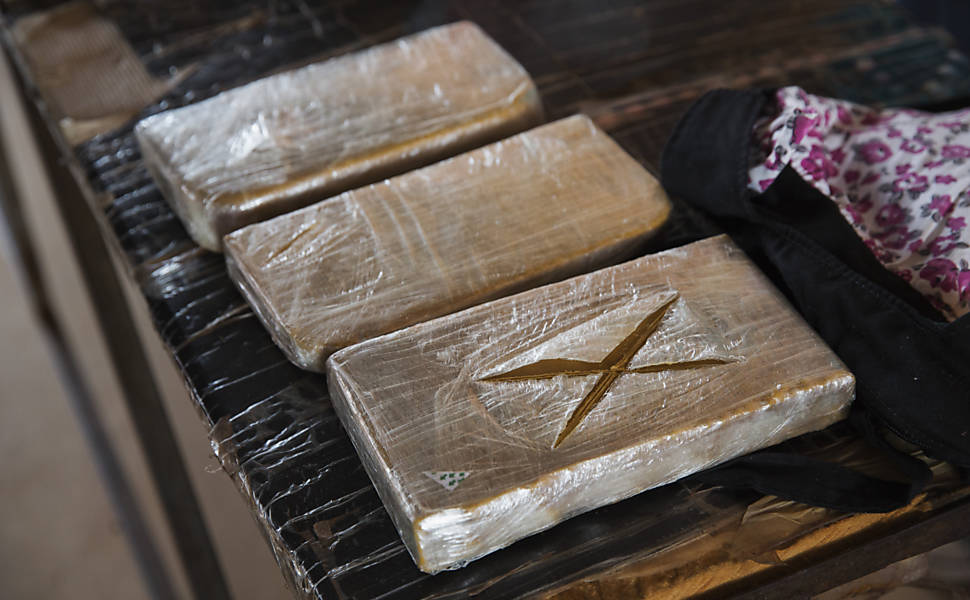Latest Photo Galleries
Brazilian Markets
17h36 Bovespa |
-0,07% | 124.646 |
16h43 Gold |
0,00% | 117 |
17h00 Dollar |
+0,29% | 5,1640 |
16h30 Euro |
+0,49% | 2,65250 |
ADVERTISING
Crack Seizures Increase on Paraguay's Border
03/18/2015 - 09h24
Advertising
REYNALDO TUROLLO JR.
SPECIAL ENVOY TO FOZ DO IGUAÇU
Crack seizures on the main border between Brazil and Paraguay have soared in the last five years. The route is dominated by the criminal faction called PCC (First Command of the Capital, in its Portuguese abbreviation).
Although cocaine is still the gang's flagship, the data may confirm the suspicions of São Paulo Civil Police: with an eye on the growing demand, the gang that before disregarded the drug because it quickly exterminates the user, has been investing on crack.
There are ongoing investigations in "cracolândia", an area in downtown São Paulo known for the drug consumption.
In addition, as Folha revealed in 2013, the drug, which had been banned by the faction from the city's prisons in 2002 due to the violence it caused, was again found in penitentiaries two years ago.
The crack rocks are coming from Paraguay and are ready for consumption, according to experts from the Federal Police in Foz do Iguaçu.
Seizures made by two different agencies show its escalating entry into the country. This year alone, the Brazilian Federal Highway Police in Foz do Iguaçu seized 182.4 kg, more than the total confiscated in 2013 and 2014 -110 kg and 139 kg, respectively.
Much of the crack that comes from the neighbouring country is taken to São Paulo, the main consumer centre. The same happens with part of the cocaine. In 2014, the number of arrests related to the drug hit a record high in Foz do Iguaçu.
Paraguay, known for growing marijuana, does not produce cocaine, which is the base for crack. The country only serves as gateway to Brazil. The drug originally comes from Bolivia, Peru and Colombia.
p(tagline). Translated by JULIANA CALDERARI




